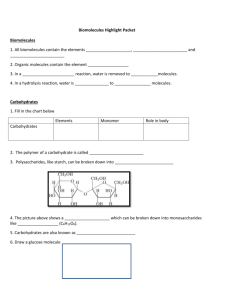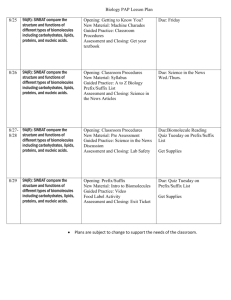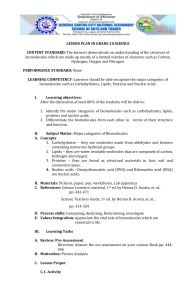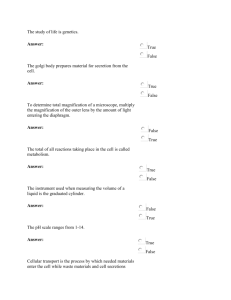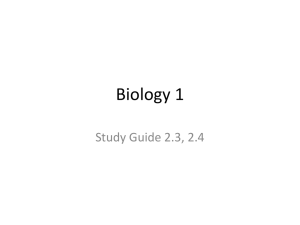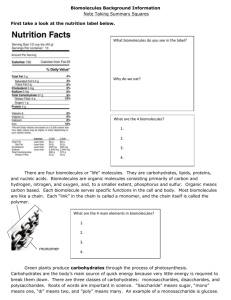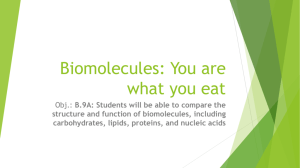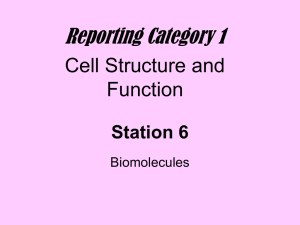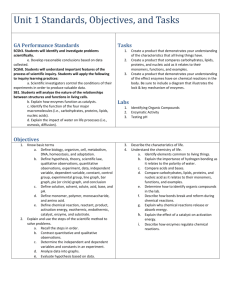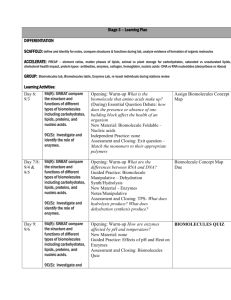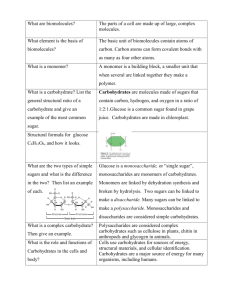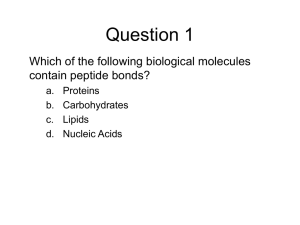biomolecule ppt
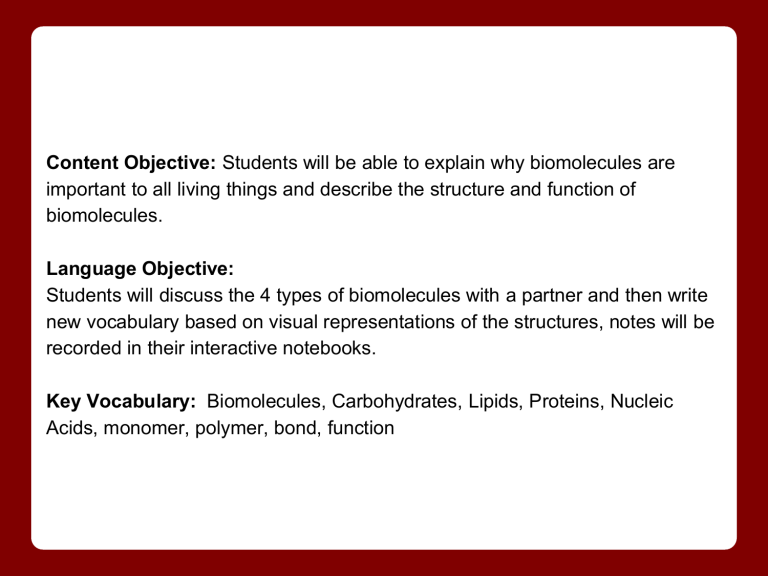
Content Objective: Students will be able to explain why biomolecules are important to all living things and describe the structure and function of biomolecules.
Language Objective:
Students will discuss the 4 types of biomolecules with a partner and then write new vocabulary based on visual representations of the structures, notes will be recorded in their interactive notebooks.
Key Vocabulary: Biomolecules, Carbohydrates, Lipids, Proteins, Nucleic
Acids, monomer, polymer, bond, function
BIOMOLECULES
Four groups of organic compounds found in living things are carbohydrates, lipids, nucleic acids and proteins.
aka: Macromolecules
“macro” = large
Concept Map
fill in the blanks!
CARBOHYDRATES
● Function: Living things use carbohydrates as their main source of energy. o Plants and some animals use carbohydrates for structural purposes.
CARBOHYDRATES
● Monomer: carbohydrates are made of monosaccharides o “mono” = one o “saccharide” = sugar
● GLUCOSE
Structure:
Elements
C H O
Examples of Carbohydrates
Think about your food ad….
LIPIDS
(fats)
● Functions: o Lipids can be used to store energy for later use o Phospholipids are important parts of biological membranes
Lipids
● Monomer: lipids are made of a glycerol and fatty acid chains
● Structure:
Elements
C H O
Explain how the number of bonds is related to the amount of energy stored.
Examples of Lipids
Think about your food ad….
PROTEINS
● Functions: o Some proteins control the rate of reactions and regulate cell processes. o Some are used to form muscles.
o
Others transport substances into or out of cells
Proteins
● Monomer: proteins are made of a chain of amino acids
● Structure:
Elements
C H O N
Examples of Proteins
Think about your food ad….
NUCLEIC ACIDS
● Function: Nucleic acids store and transmit hereditary or genetic information.
● Examples: two kinds of nucleic acids:
RNA – ribonucleic acid
DNA – deoxyribonucleic acid
Nucleic Acids
● Monomer: nucleic acids are made of a chain of nucleotides
● Structure:
Elements
C H O N P
Examples of Nucleic Acids already in your body!
Based on what we have just reviewed- How does the structure relate to function in biomolecules?
Can you…...
1. Identify the monomers of each biomolecule.
2. Can you explain the function of each biomolecule?
3. Explain why biomolecules are considered polymers.
Next class =
Biomolecule Lab
Pre-lab: Copy data table
